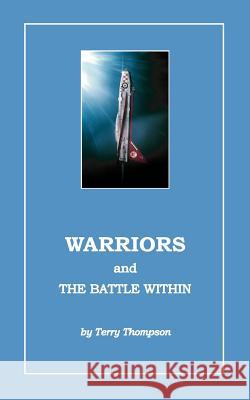Warriors and the Battle Within » książka
Warriors and the Battle Within
ISBN-13: 9781412014748 / Angielski / Miękka / 2004 / 380 str.
Warriors is the story of a Canadian fighter pilot whose operational flying career ended with his introduction to a headquarters staff job. He was engaged in the Cold War from his youth through an ever-changing career path.
His military account begins as a raw recruit and the most junior member of the air force. As the story unfolds, the reader is taken through the author's career progression as a radar technician, his remuster to commissioned officer status and his training as a pilot in the air force. His experiences as a fighter pilot provide the layman an inside look at "the right stuff" and the thrills of operational flying combined with a complete season of formation aerobatics in a Mach 2 fighter aircraft.
The author leads us through his uneasy transition to staff officer and his development in that role. He relates his three-year posting into the pilot training establishment and his participation in the eventual formation of the Snowbirds aerobatic team.
In his final tour at National Defence Headquarters the author was in a position to witness first hand the deterioration of the military culture at the highest levels. He relates his struggles to maintain some semblance of military ethic in the routine conduct of his duties under ever deteriorating circumstances.
This book puts the Cold War into a perspective as seen by those who lived through it. It identifies the 9/11 tragedy as the beginning of a new and frightening era. It recognises the World Trade Centre act of terrorism as a wake up call for a country that has allowed it's politicians while looking inward, to savage defence budgets over the past thirty years all the while watching it's once proudmilitary services atrophy.
This book that will be of interest to students of military and strategic studies and to the average observer of Canadian defence and foreign policy. Praise for WARRIORS AND THE BATTLE WITHIN The first point that struck me personally was that your military service paralleled mine. I agree with you that these were the best years to serve, given the Cold War and very viable Armed Forces (strength as high as 115, 000). Like you, I retired early at 53 rather than 55 years of age for exactly the same reasons you did. Another similarity was that we joined as private/airman, an invaluable experience in my opinion. Final point, your book certainly fills a niche in the Cold War Historiography.
William Bentley Macleod Colonel (ret'd) OMM, CD - Kingston, Ontario
When Terry Thompson joined the RCAF as a small-town prairie boy in April of 1951, he had no idea of the adventure that lay ahead. Following a stint as a ground radar technician, he applied and was accepted as an aircrew candidate and began pilot training at Penhold, Alta, in Feb 1953.
Over a longflying career, Thompson flew a variety of fighter aircraft, notably the CF-100 interceptor, the Hawker Hunter and the English Electric Lightning during an exchange tour with the RAF which included a season with the 56 Sqn Firebirds aerobatic team. He also flew the F-86 Sabre, the CF-5 Freedom Fighter, and the Tutor jet trainer as an instructor and standards officer at CFB Moose Jaw, Sask.
But this book is more than just another "there I was at 30,000 feet" opus. Terry Thompson spent two ground tours at National Defence Headquarters (NDHQ) in Ottawa, the first when the Wars of Unification were being fought in the hallways during the late 1960s (hence the book's title). Having a front row seat on the internecine skirmishes in progress was instructive, and the author takes us into the inner workings of a headquarters being traumatized not just with defence minister Paul Hellyer's unification plan, but also with the civilianisation of NDHQ imposed by an anti-military prime minister, Pierre Elliot Trudeau.
During his second tour and terminal posting at NDHQ, from 1974 to 1981, and now a lieutenant colonel, Thompson saw the fruits of the seeds that Trudeau and Hellyer had sown. He writes: "For the RCAF the sky had indeed fallen. This new integrated service was no longer one with which I could identify. As the forces fuelling the Cold War began to sputter, the military imperative was lost and in my last few years I began to notice how the operation of the headquarters now resembled any of the other government departments.
"The uniqueness of the military had been carefully blended into the fabric of the Ottawa bureaucracy. The colourful characteristics of former fine leaders hadgiven way to the grey prominence of the new breed of civil servant. Essentially a civil servant in uniform who, once assigned his little piece of turf would defend it to the death in the mistaken belief he was fulfilling his role in the military chain of command."
It is a sentiment shared by many RCAF old-timers.
Vic Johnson, AirForce Magazine Cal Annis, Calgary











